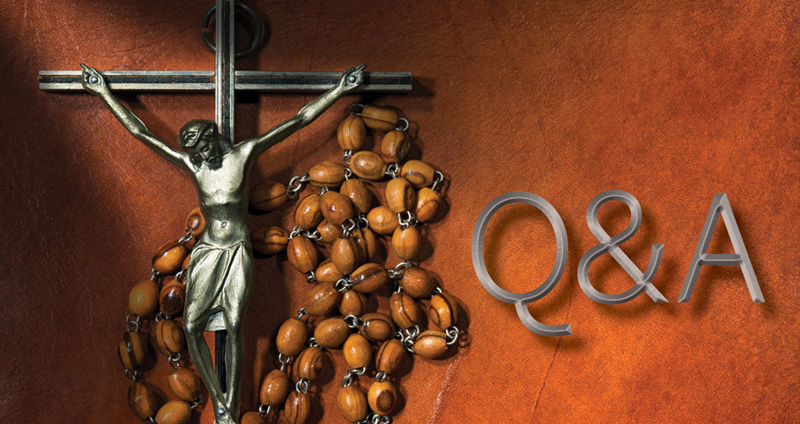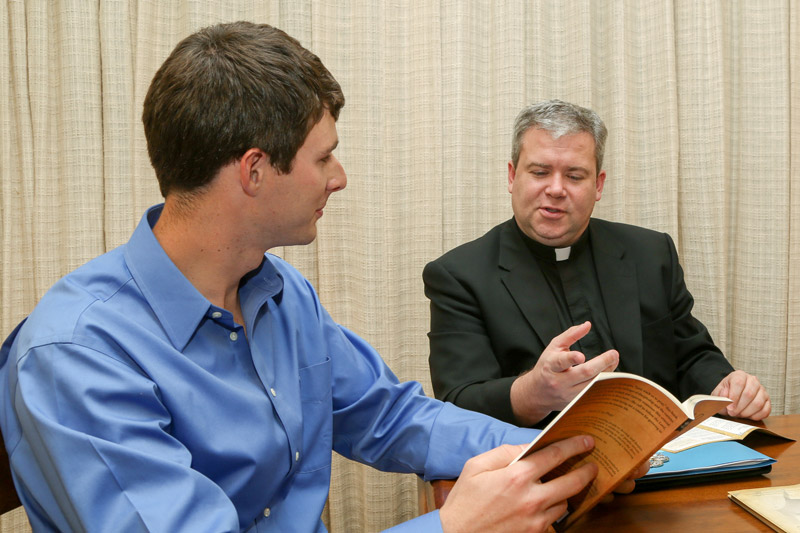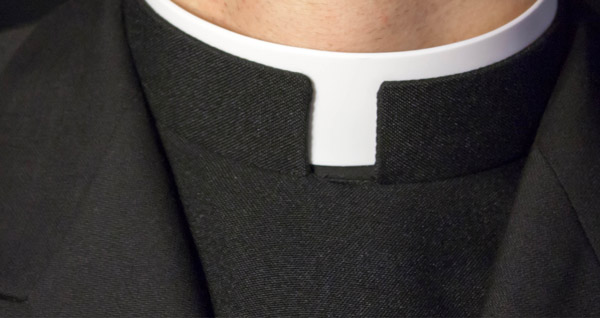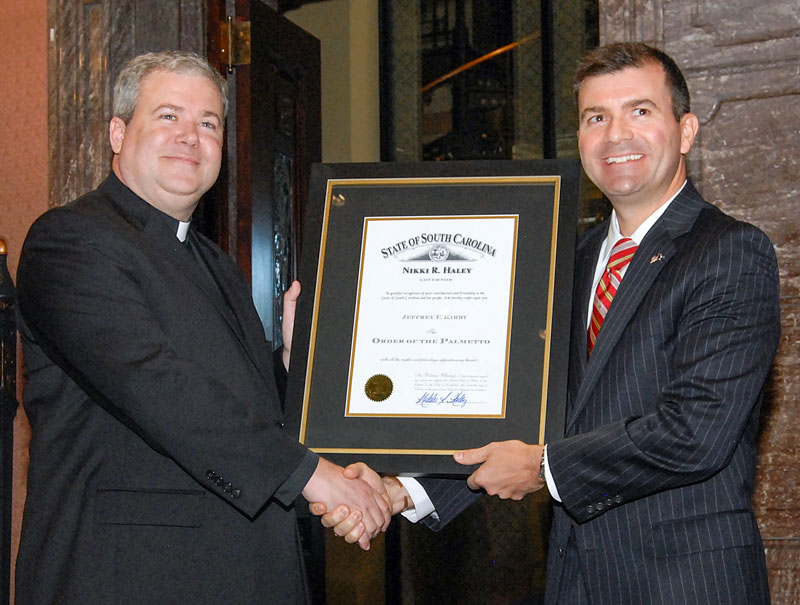
Q: In the Bible, Jesus talks about a sin that is unforgivable. This makes me very nervous. What is this sin that is unforgivable? (Columbia, SC)
A: In his public teachings, Jesus speaks about blasphemy against the Holy Spirit as being an unforgivable sin (Lk 12:10). This has been generally interpreted to mean a rejection of God’s grace. This happens when a person denies the ability of God to forgive them.
This action is the height of pride. And it becomes a self-fulfilling prophecy since such a rejection of God’s grace does actually remove the capacity of God to forgive us, since he will never impose himself upon us.
And so, we can see that God is generous in his mercy and that he will always forgive whatever sins we surrender to him. We should never be nervous or afraid. The only time something becomes unforgivable is when we refuse to confess it or when we deny God’s ability to forgive it.
Q: What do the letters INRI stand for? I see them over certain images of the cross and have always been curious. (Walhalla, SC)
A: The letters stand for the full Latin inscription: Iesus Nazarenus Rex Iudaeorum, which translates as Jesus of Nazareth, King of the Jews. The declaration was ordered by Pontius Pilate and placed on the cross where Jesus was hung.
While most depictions of the cross only display the Latin text, the Gospels tell us that the declaration was actually written in Latin, Greek, and Aramaic (Jn 19:19-20). The three languages were used so that everyone who walked by Calvary would know the charge leveled against Jesus.
By asserting that Jesus claimed to be the king of the Jews, Pilate was able to condemn Jesus for comparing himself to Caesar and for rebellion within a Roman occupied province. This is ironic since Jesus never actually claimed to be an earthly king. When others tried to make him one, he refused the honors and directed their attention to the kingdom of heaven and the greater work of salvation.
Incidentally, in Jesus’ day, King Herod the Tetrarch wanted the title “king of the Jews,” but Rome refused to give the title to the puppet king of Galilee. And so, by mocking Jesus with the false title, Pilate was also mocking Herod and the Jewish people of Jesus’ day.
Q: I’m in my older age and unable to attend Mass. I watch it on TV and asked my pastor if this suffices. He said it did not. Why would they have Mass on TV if it doesn’t count? I feel in my heart that I am attending Mass. (Myrtle Beach, SC)
A: Your pastor is correct. A televised Mass does not fulfill our Sunday Mass obligation. But it’s also true that if we cannot legitimately attend Mass due to bad health, then our obligation is lifted. In such cases, for devotional reasons, televised Masses are available and encouraged to the faithful.
And so, while a recorded Mass does not fulfill our obligation to be together as God’s people on Sunday, it can help the homebound to hear the Mass prayers and readings and have a devotional experience of worship.
Father Jeffrey Kirby is administrator of St. Joseph Church in Chester and Our Lady of Grace Church in Lancaster. Email your questions to askfrkirby@gmail.com.




